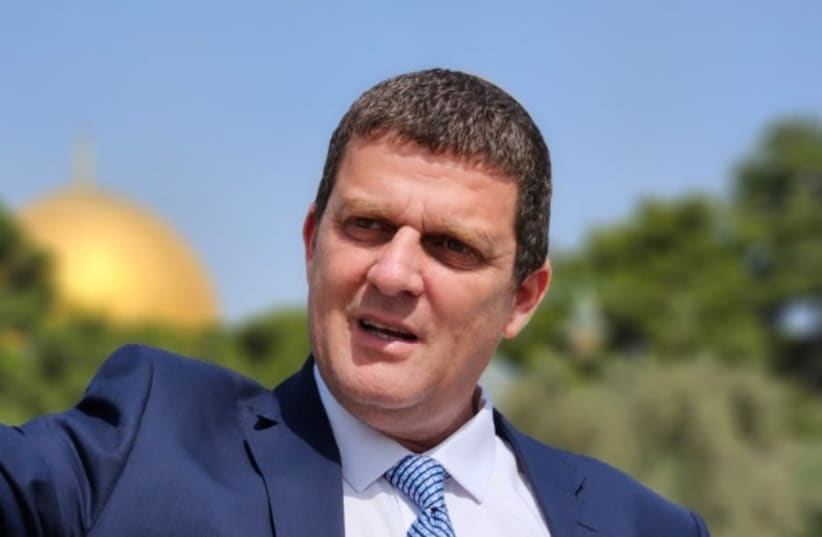ARTICLE AD BOX
Halevi argued that, given Hamas’s violation, Israel has no choice but to reassess its approach.
By WALLA! FEBRUARY 12, 2025 10:02 Knesset member Amit Halevi on the Temple Mount
(photo credit: 'In Our Hands for the Sake of the Temple Mount')
Knesset member Amit Halevi on the Temple Mount
(photo credit: 'In Our Hands for the Sake of the Temple Mount')
Likud MK Amit Halevi addressed Hamas’s recent statement and the ultimatum set by former US President Donald Trump for the release of hostages by noon on Saturday, as well as the implications of a potential breach of the deal, in an interview with 103FM on Wednesday.
Halevi discussed the status of the deal following Hamas’s announcement and Trump’s ultimatum. He acknowledged the potential costs but argued that the situation had shifted.
“Even if we pay a heavy price in this deal, it takes on a completely different perspective,” he stated.
Halevi said Hamas’s actions should not come as a surprise.
“We should not be surprised by Hamas’s conduct. Perhaps the IDF thought they would violate [the agreement] tomorrow and not yesterday, but in general, their considerations are not those of a commercial or Western-style deal. They have completely different considerations—they act in a way that serves jihad.”
A different outlook
He emphasized the role Trump has played in reshaping the strategic outlook.
“Until this violation, there was a shift in the situation because President Trump outlined a different horizon. This allowed even those who were vehemently opposed to the deal—and rightfully so, given its immense dangers—to see at least a new direction. Now, we are moving toward a major migration project, a completely different process.”
Halevi argued that, given Hamas’s violation, Israel has no choice but to reassess its approach.
“In the current situation, where Hamas is violating even this part of the deal, I don’t think Israel has any other choice. If the Israeli government is seriously and practically preparing to advance Trump’s plan, the deal takes on a different perspective, despite what I am seeing happening in Beit Hanun.”
He maintained that Israel’s response must be tied to a long-term strategy.
Stay updated with the latest news!
Subscribe to The Jerusalem Post Newsletter
“If the Israeli government acts to implement the migration plan and does everything necessary, it could be considered positively. But if we return to the same rounds [of fighting] and the same methods of warfare without a real plan to create [a future] for those 1.5 million or so people in Gaza, then my answer is no. The circumstances have changed.”
Halevi revealed that he had requested a Knesset discussion on the migration of Gazans from the Strip, though no such debate had taken place yet. He elaborated on the issue, arguing that relocation is feasible with the right measures in place.
“It can be done in different ways, and it’s not that complicated if the government indeed takes the necessary actions—such as securing receiving countries and leveraging the pressure that President Trump can apply in this regard. The IDF must prepare accordingly.”
Taking the lead
Ultimately, Halevi asserted that Israel must take the lead in shaping the outcome in Gaza.
“At the end of the day, no one will do the job for us, just as President Trump said—there will be no American soldiers doing this. Only the State of Israel, and that certainly requires a completely different level of control over Gaza. We will not return on Saturday at noon to the same form of combat in the same unacceptable manner. If we return, it must be with this plan as the goal. We are going back to fighting, but in a different form and for a different purpose—something that hasn’t happened until now.”
Halevi also expressed hope that changes in Israel’s military leadership would bring about a shift in strategy.
“I really hope that both the new chief of staff and the relatively new defense minister will present different plans. If the intention is to send our soldiers into Jabalia for the sixth time using the same method, that is a national disaster, and it must not happen.”
According to him, any new approach must lead to the “conquest of the Strip.” He argued that Israel must capitalize on the evolving geopolitical climate.
“The circumstances have changed, and this needs to sink in. The international system, now led by President Trump, is in a different place. We must fully seize these historic circumstances and must not miss them.”

 3 hours ago
3
3 hours ago
3







 English (US) ·
English (US) ·